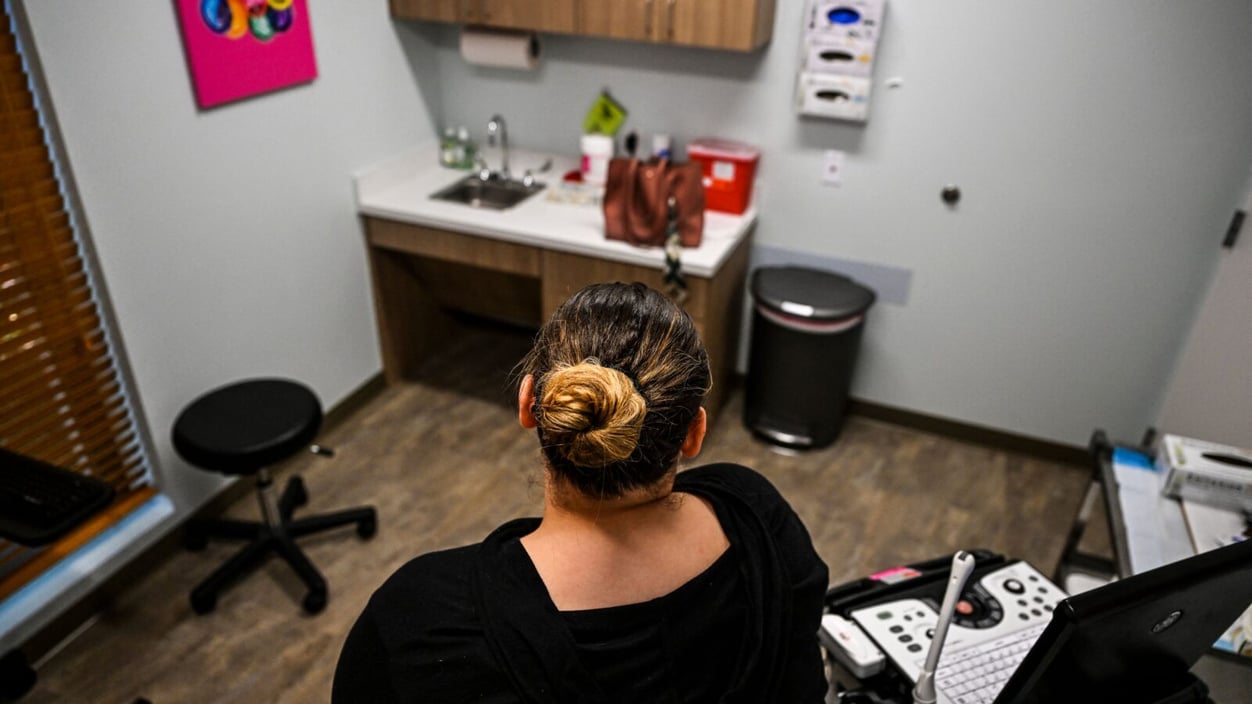closer look
Proposals to protect abortion patients' records are getting pushback

Chandan Khanna/AFP via Getty Images
Like many other repercussions from the U.S. Supreme Court's Dobbs decision, the issue of patient privacy is fraught. Abortion access and laws vary widely depending on where you are, spurring concern about what happens when patients' electronic health records are shared across institutions and state lines. The Biden administration hopes to introduce new patient privacy regulations to protect patients and providers from prosecution, but health care giants UnitedHealth Group and Epic are pushing back.
After years of pressure to increase data sharing in the health care system, new efforts would require software makers to ensure that health care providers can easily segment and protect specific information from disclosure when requested by patients. "EHRs have been working so hard to share data automatically," family medicine physician Michele Gomez told STAT contributor Paul Webster, "that we're now behind in thinking about how to not share when that data can be used to criminalize a patient." Read more.
cancer
For ovarian cancer, proof of principle from a Pap test inspires hope
A diagnosis of ovarian cancer can be especially devastating because it's usually delivered too late for treatments that work well early in the disease to help those in the later stages. That's why there's such an urgent need for early detection. Researchers writing in Science Translational Medicine yesterday raised some hopes with their small, retrospective study of Pap smears that they emphasize is only a proof of principle. They report that their test found genetic changes predicting ovarian cancer up to nine years before diagnosis.
The corresponding author and two outside experts flagged some important caveats (the healthy group was younger than the cancer group, for example), but their hope for progress was clear. "I think it's conceptually very interesting and also very exciting," said Naoko Sasamoto, a Harvard Medical School gynecologist and clinical oncologist at Brigham and Women's Hospital in Boston. "However, I have to say that we're not there yet." I have more here.
in the lab
AI-guided blood test predicts organ aging — and risk
Do you know the organs in your body age at different rates? For most people, kidneys, hearts, and livers are on different clocks, research over the last decade has concluded, ticking away until disease or injury jam the works. The challenge, one accepted by researchers whose work appeared yesterday in Nature, is to puzzle out which organ is headed toward trouble before it's too late to fix it. Their method analyzed distinct proteins shed by organs into the blood, enlisting AI for this cause.
The research suggests it might be possible one day to use a blood test to warn people at high risk for different organ-specific diseases. In the study cohort of more than 5,000 adults over age 50, about 1 in 5 had one organ aging significantly faster than the rest. Accelerated heart-agers, for instance, were at a 250% increased risk of heart failure later in life. STAT's Megan Molteni tells us more.


No comments